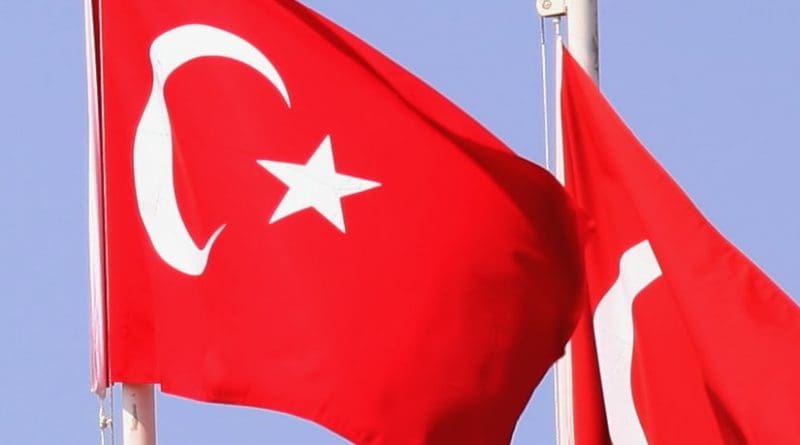Schools A New Tool Of Turkish Influence In Albania – Analysis
The Maarif Foundation, a tool of Turkish President Erdogan, is expanding its presence in Albania, and not everyone is pleased.
By Fatjona Mejdini
In early July, hundreds of excited students and parents gathered for the annual graduation ceremony of the ‘New York University in Tirana’, a highly-regarded private university in the Albania capital.
In honour of the bachelor, master and PhD graduates of NYUT, a lavish ceremony was organised in a Tirana theatre complete with a special message read out from Turkish President Recep Tayyip Erdogan.
“I support the work of our foundation in fulfilling the educational needs of our brothers and Albanian friends,” Erdogan’s message read.
The foundation is known as Maarif, created in June 2016 by the Turkish Parliament as the sole official provider of Turkish-backed education abroad.
Today, the Maarif Foundation boasts a presence in 35 countries with a total of 294 educational institutions, the majority in South Asia, Africa and Southeast Europe.
A major tool in Turkish soft-power diplomacy, the Foundation is also a weapon in Erdogan’s battle to dismantle the worldwide network of educational institutions of his arch enemy and the man Ankara says was behind a failed 2016 coup, US-based Muslim cleric Fethullah Gulen.
Maarif bought NYUT in August 2018, while alongside acquiring the NY Basic Education School and NY High School in Tirana.
To celebrate the acquisition, Turkish Foreign Minister Mevlut Cavusoglu delivered a speech at the opening of the NYUT academic year.
But the Foundation did not stop there.
Political tool
In June, Maarif announced the creation of ‘Farm Kindergarten Albania’, a kindergarten on 2000 square metres of farmland in a Tirana suburb offering “real outdoor learning”.
Then in July, it announced the creation of a high school in the central Albanian city of Elbasan that is due to open in September.
Critics, however, say the expansion is less about education than politics, about reining in Gulen and burnishing the image of Erdogan abroad.
“More than educational intervention, Maarif is political,” said Ermir Hoxha, an Albanian journalist who closely follows developments in Turkey and is the publisher behind the Te Sheshi news portal.
“Now it needs to be seen whether education will prevail over politics in these schools.”
Turkey has had a presence in education in Albania for decades, ever since former Turkish President Turgut Ozal inaugurated the first Turkish college in Tirana in 1993, two years after the collapse of communism in Albania.
The college, Mehmet Akif, soon became an elite institution, the first private school in post-communist Albania offering high-quality education in Albanian, English and Turkish.
Other Turkish colleges followed, hiring teachers and administrators among followers of Gulen, who was originally an ally of Erdogan.
“The Albanian elite chose to educate their children in these schools, without having any cultural or religious affection for Turkey,” Hoxha said. “They didn’t even know who Gulen was or what the spirit of his organisation was. They chose to do so because of the high-quality education on offer.”
Erdogan and Gulen fell out, however, and in May 2015, during a trip to Tirana, Erdogan referred to his former ally’s organisation as a ‘terrorist’ group and reportedly demanded the closure of schools linked to him.
The Albanian government resisted. But after the failed 2016 coup, Gulen-linked schools and Turks who work for them around the world have come under intense pressure. Maarif began its expansion.
Not everyone is impressed.
‘Cultural aggression’
In July 2018, the private Albanian school ‘Udha e Shkronjave’ issued a press release denouncing what it called the “Turkish cultural aggression” through the buying up of Albanian schools.
It detailed a meeting between school director Artur Shkurti and Maarif’s chief representative in Albania, Fatih Cankurt, at which Cankurt set out Maarif’s desire to buy the school.
Maarif’s presence, the school said, “just further expands the Turkish presence in Albanian life. They make Albanian society become embroiled in the problems and interests of Turkey.”
BIRN requested an interview with Cankurt but received no reply by the time of publication.
The Maarif Foundation Albania does not disguise its political allegiance.
On its Facebook page feed, there are posts, comments and footage concerning the failed 2016 coup alongside statements from the Turkish ambassador to Albania condemning Gulen, who has denied any involvement in the attempted putsch.
Genc Pollo, an Albanian opposition politician and former education minister, said there were strict rules in Albania about the operation of foreign-run schools.
“It is emphasised that schools should demonstrate a national and secular nature, not engage in politics, not incite racism, terrorism, anti-Semitism etc,” he said. They should also guarantee pro-European and Western orientation and values, promoting democracy and individual freedoms.”
But ensuring the rules are met requires political will, he said.
“Otherwise implementation of regulation becomes very relative.”
Hoxha, however, said it would be unrealistic to expect Turkey to resist promoting its own values and strategic outlook through such schools.
“In the end, it all boils down to student choice,” he said. “They can decide to take from (Maarif) schools only the scholastic knowledge or take also the political and cultural spirit of today’s Turkey.”

